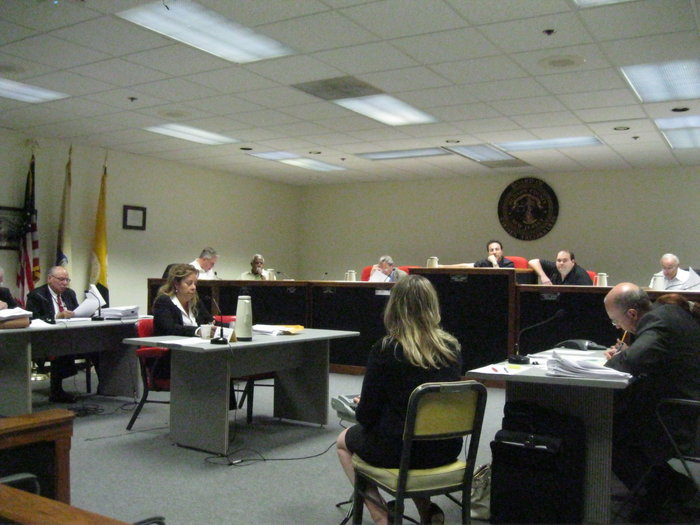Saying they will likely refuse to pay the $2.4 million costs associated with the special election to fill the U.S. Senate seat left vacant by the death of Frank Lautenberg, the Hudson County Board of Freeholders said at its July 11 meeting that they may force the state to take the county to court.
The county is expected to use funds dedicated to the November regular election to cover the cost of the August primary and then inform the state it does not have the revenue to cover the remaining elections that include a special election in October, and a number of state and local elections in November.
Freeholder Bill O’Dea said the county will explore its options, but will likely withhold payment for additional elections now that the budget for the year has been depleted by the cost of the August primary.
Representatives from various county departments dealing with the election said the primary and the special election would cost about $1.2 million each.
“We’re using the November election money for the August primary,” said County Clerk Barbara Nechert. “If the state does not agree to reimburse us, then we will have to come back to the Freeholders to ask for additional revenue for the special election and regular election in November.”
Freeholder Jeff Dublin, who currently serves as chairman of the New Jersey Association of Counties, said his organization is planning to file a class-action lawsuit against the state to get funding for additional elections—which the state has not yet set aside.
“Hopefully, we’ll get a response within the next two weeks,” Dublin said.
County officials hope to meet with all the local legislators, O’Dea said, to get them to work on behalf of the county.
Assemblyman Vincent Prieto, O’Dea said, should be particularly helpful since he heads the Assembly budget committee.
“If bills haven’t been introduced to reimburse counties, they should be done immediately,” O’Dea said.
Even if the state decides to reimburse the cost next year, local taxpayers will get hit with the bill, O’Dea said.
Freeholder Jose Munoz questioned the logic behind this, asking why the state is withholding the funding if the state is the one mandating the special election.
No one seemed to be able to answer the question.
County Administrator Abe Antun said, however, if the freeholders fail to vote to fund the next two elections, his office cannot authorize the county clerk to hold the election.
But the state will likely take the issue to court to sue each county to authorize the election. This would be a legal mess since it might force different segments of county government, such as the county clerk’s office or the county executive’s office to sue the freeholders as well, as the state pushes to have the election funded.
O’Dea asked if the county can withhold the current money from funding the August election. Antun said the money is already spent and the process already started for the Aug. 13 special election primary, because of the need to have ballots printed and other things set into place. But the county could withhold payment for the next two elections.
The November election is expected to be more expensive than usual because of changes in school-board elections from April to November in several towns. In Hoboken, this is complicated even more by the fact that the municipal elections will also be held at the same time.
County officials said elections may require the use of two different machines in Hoboken, something that will need to be reviewed by the state once it is determined how many questions will be on the ballot there.
Ideally, state and county candidates would be on one machine, while local candidates and issues on the other.
How to regulate voting will be a challenge. Will voters need two slips, one for each machine, or one slip and simply move from one to the other.
Al Sullivan may be reached at asullivan@hudsonreporter.com.
